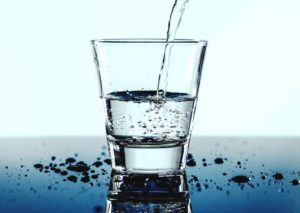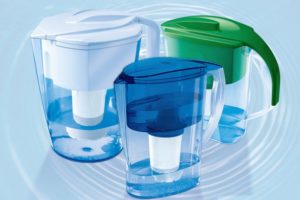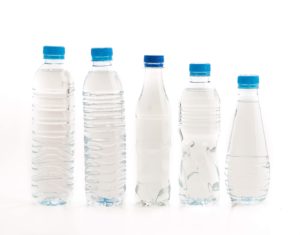Content
- 1 The benefits of water for the body
- 2 What Happens to the Body When Dehydrated
- 3 How much water should a person drink per day
- 4 Is it good to drink water on an empty stomach
- 5 Can I drink water at night
- 6 What water is better to drink
- 7 The benefits and harms of spring water
- 8 How to purify water at home
- 9 Can water harm the body
- 10 Conclusion
The question, what are the benefits and harms of water, at first glance, may seem inappropriate. Indeed, without this chemical compound it is impossible to imagine the existence of a single living organism. But what water and in what quantities is better to drink so as not to get harm from the contaminated composition of life-giving moisture, it is especially important to understand today, in the face of a deteriorating environmental situation.

The benefits of water for the body
The health benefits of water are undeniable. Since 70% of the body consists of water, due to its deficiency, all biochemical processes are disrupted. This negatively affects your well-being.
Improves Digestion
For the normal functioning of the digestive tract, water is simply necessary. It has the properties of a solvent that helps assimilate various vitamins, salts, useful and nutritional elements.
Lack of water is harmful to the stomach, as it negatively affects the production of gastric juice, which is the cause of diseases such as bloating, constipation, obesity, ulcers and gastritis.
Improves the condition of hair and skin
Water nourishes the skin with moisture, prevents early aging and the appearance of wrinkles. Since water actively participates in the process of perspiration, it cleanses the pores of impurities, leaving the skin smooth, fresh and radiant.
Dehydration also damages the hair. The hair follicles do not receive useful and nutritious elements at all. Drinking enough water will help your hair regain shine and firmness due to its beneficial properties.
Promotes weight loss

Drinking plenty of water can help you lose weight. There are several explanations for this.
- A glass of water with your meal will keep you satisfied in smaller portions.
- Water improves metabolism, starts metabolic processes.
- The feeling of thirst can often be confused with the feeling of hunger: a glass of clean water will help tame the latter.
Removes toxins
The more liquid a person uses, the more toxins and toxins are excreted by the body. This is due to the fact that harmful substances leave it along with sweat and urine.
Relieves stress and fights fatigue
The harm from dehydration is that a person feels tired, sleepy, and muscle weakness. Even dizziness can often occur. This is because a lack of water provokes a decrease in enzymatic activity, cells do not receive nutrition and die over time, as a result, a person's working capacity decreases.
Improves blood circulation
Water is beneficial for blood circulation. By maintaining the water balance, normal blood circulation and fluidity are maintained.Drinking plenty of water significantly reduces the risk of thrombosis, promotes the proper functioning of blood vessels and the heart, and normalizes blood pressure.
Benefits of water for men and women
One of the main causes of aging is moisture loss. To prolong youth, keep skin smooth and soft, women need to drink high-quality well-purified water. Dehydration is extremely harmful to the skin and is one of the key factors in premature aging.
The use of water for the body of women lies in the acceleration of metabolism, which is its useful property for losing weight.
For men, the benefits of drinking water are manifested in its ability to prevent the development of male diseases such as urolithiasis and bladder cancer. Men who drink more than 2 liters of water per day are less prone to these severe ailments.
What Happens to the Body When Dehydrated
There are several stages of dehydration, each with its own symptoms and consequences.
|
Easy |
Average |
Heavy |
Critical |
|
Loss of water - 3%. No serious harm or threat to life. |
Losses - 6%. Minor threat to life. |
Loss of water - 9%. Serious threat to life. |
Losses - 10%. Death is possible. |
|
· Loss or decrease in appetite; · Decrease in the amount of urine; Weakness and tiredness, fatigue, drowsiness; Dry mouth; • feeling of thirst; · The viscosity of saliva. |
Dyspnea at rest; Tachycardia; · Increased body temperature; · A sharp decrease in the amount of urine with abstinence from urination for 12 or more hours. |
• loss of consciousness, hallucinations and delusions; · nausea and vomiting; · Critical dryness of the skin (when squeezed, the skin wrinkles and returns to its original state for a long time). |
· Disruption of all organs and life support systems; · Violation of blood supply; Coma. |
How much water should a person drink per day

Many sources claim the benefits of 2 liters of water per day. According to the WHO, a person needs to drink 30 ml of water per day per 1 kg of body weight. Thus, with a weight of 60 kg, the optimal and useful amount will be 7 - 8 glasses.
A sharp increase in fluid intake can be harmful and provoke an exacerbation of chronic diseases. It is better to get used to this gradually, starting with 1 - 1.5 liters of water per day.
Herbal teas and sodas do not have the properties of pure water. Due to their diuretic effect, they only increase dehydration. Compotes, fruit juices, milk and coffee serve as liquid food.
It is important to remember that with chronic dehydration, the feeling of thirst dulls. The body suffers from a lack of water, but the person does not notice the need to drink.
Is it good to drink water on an empty stomach
If you drink water in the morning on an empty stomach, the benefits for all organs will be simply invaluable. Entering the stomach that is not yet filled with food, water starts metabolism and has a general strengthening effect.
The benefits of a glass of water in the morning on an empty stomach:
- restoration of water balance;
- normalization of metabolism;
- preparation of the digestive tract for work;
- removal of toxins and toxins;
- normalization of appetite.
Can I drink water at night
There is no definite answer to this question. Each person has individual characteristics. Drinking a glass of water before bed can be both beneficial and harmful.
Benefits of a glass of water at night
Water will help keep you hydrated even while you sleep. A person does not feel thirsty at night, however, when breathing, part of the liquid evaporates. To reduce the harm from dehydration, it is recommended to drink 100 - 150 ml of water 30 minutes before bedtime.
The harm of drinking before bed
- poor sleep;
- high load on the kidneys;
- swelling in the eye area;
- frequent urination.
Such problems can be caused by diseases of the heart, kidneys and genitourinary system. For a healthy person, drinking water before bedtime can only cause harm in large quantities, so it is extremely important to observe moderation and not exceed the recommended daily volume.
What water is better to drink
Tap water is unlikely to be beneficial. It is considered unfit for drinking and can cause significant harm, since it contains chlorine, heavy metals, bacteria and viruses that can remain in water, including after boiling. What kind of water is better to drink will be discussed further.
The benefits and harms of distilled water
On the one hand, distilled water is the most pure, since it does not contain various impurities and other inclusions.
On the other hand, the distiller kills all microorganisms using high temperatures. Water after such treatment has no useful properties.
Distilled water has neither significant benefit nor harm. It only performs the main function of delivery and excretion of substances.
The benefits and harms of filtered water

The use of water from the filter is in its purification from harmful impurities during filtration.
Household filters do an excellent job of removing chlorine from tap water. However, they are ineffective if the source water has a high level of bacterial and industrial pollution.
The benefits and harms of bottled water

The benefits of drinking bottled water directly depend on its quality. Before becoming potable, water undergoes disinfection and several stages of purification. When choosing, you should pay attention to the following properties:
- bottling source;
- compliance of water with SanPin standards;
- the content of nutrients and vitamins.
These properties are usually indicated by the manufacturer on the product label.
The benefits and harms of spring water

Spring water flows through layers of sand and gravel before it reaches the surface. Such natural filtration allows it to preserve all the beneficial properties, natural structure and hydrochemical composition, due to which the benefits of spring water for the body are obvious. But it can also be harmful.
The chemical composition of water from different springs is different, therefore, the healing properties will be very diverse. The benefits of water from one spring can be beneficial for the nervous system. Water from the second source will have healing properties in the fight against hypertension. However, most of the springs contain regular drinking water.
It is important that the spring is clean. There should be no garbage dumps or industrial plants near it. In such cases, water can contain extremely hazardous elements: lead, nickel, arsenic, pesticides, nitrates, oil products and mercury.
Spring water can also cause serious harm if it contains bacteria, including E. coli.
How to purify water at home
Only clean water is beneficial for the body. The simplest and most effective way to clean it at home is to freeze it. This water is called melt water. This method allows you to preserve all the useful properties of water, but at the same time get rid of salts and bacteria dissolved in it.
All you need are plastic bottles and a freezer.
- Water must be bottled, not topping up to the brim 2 - 3 cm, as it expands when frozen and can damage the container.
- Place the bottles in the freezer, checking the water regularly.
- When two-thirds of the liquid freezes, the sediment must be poured out, since all mineral impurities remain in it.
- The remaining ice must be thawed, after which the melt water will be completely ready for use.
Can water harm the body
High-quality clean water can be harmful only if you drink it in very large quantities, significantly exceeding the daily norm. This provokes the development of drinking sickness, when the kidneys do not have time to pass all the liquid, and it penetrates into other organs, which, as a result, swell. It is worth remembering that healthy kidneys can only pass through 0.8 - 1 l of water per hour.
Drinking a lot of fluids can:
- lead to poor and restless sleep;
- cause kidney disease;
- the most severe case is edema of brain cells, the consequences of which include convulsions, respiratory arrest, coma and death.
Conclusion
The benefits and harms of water directly depend on its quality. It is a vital element for humans, maintains health and prevents the risk of developing many diseases. But in order not to harm yourself, you need to drink water in moderation, no more than 2 - 2.5 liters per day.

